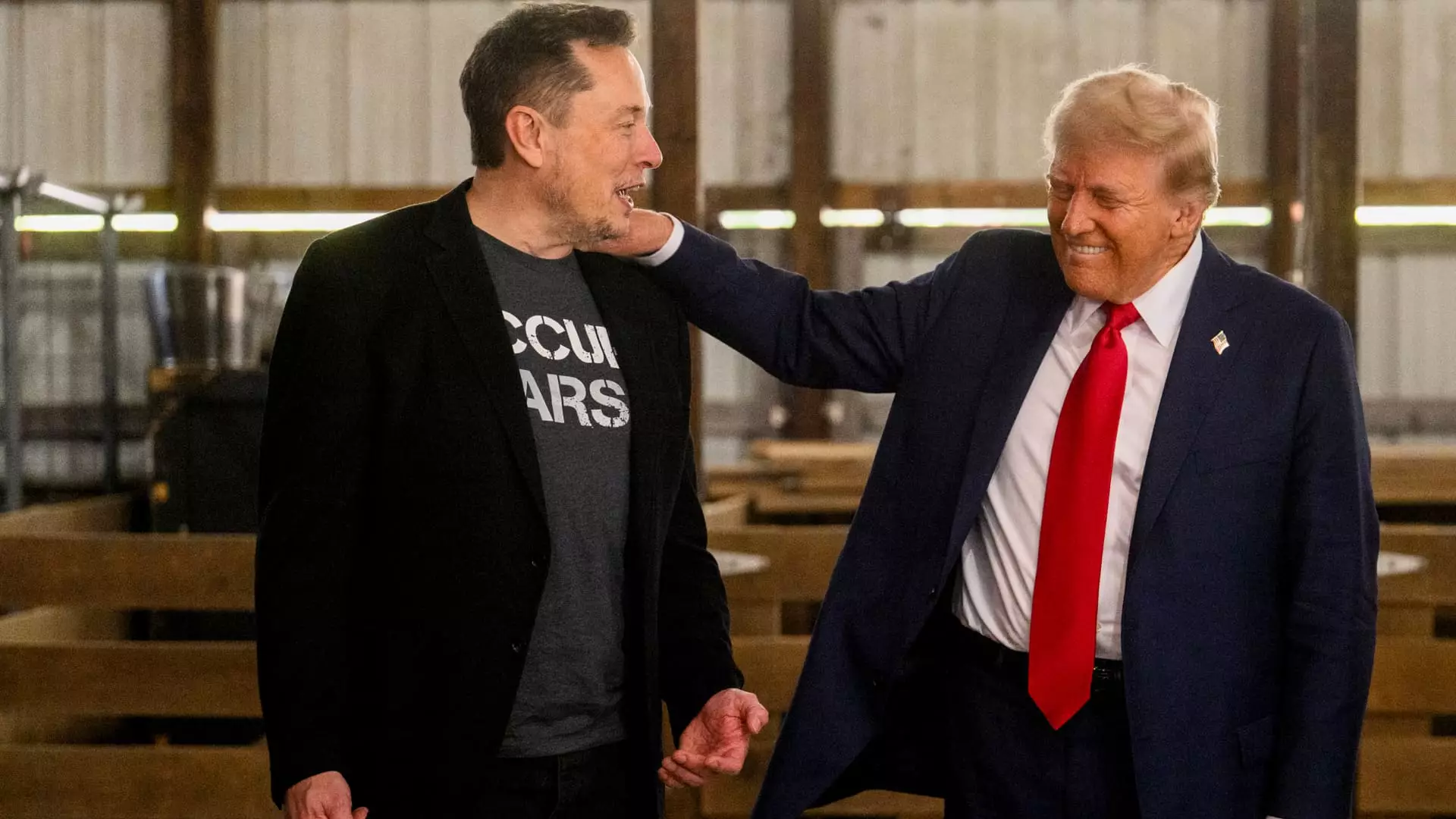The meeting between Elon Musk and then-President-elect Donald Trump marks a significant moment in the intersection of business, technology, and politics. Musk, the CEO of Tesla and SpaceX, not only represents innovation and futuristic ideas but also embodies a new breed of entrepreneur who is unafraid to venture into the political arena. His relationship with Trump showcases how influential business leaders can impact governmental policies and decision-making processes. The choice to form an outside commission titled the “Department of Government Efficiency” is a striking step towards dismantling bureaucratic red tape. Musk’s famous claim that the initiative would send “shockwaves through the system” indicates a bold move aimed at fundamentally changing the status quo.
While the implications of Musk’s presence in Trump’s circle remain to be fully unfolded, it is clear that this alliance is meant to challenge traditional governmental functions. This collaboration may excite progressives and conservatives alike, as it promises an injection of entrepreneurial spirit into governance. Musk’s known ambition to optimize every facet of his companies fuels his desire to apply similar principles to the American government.
In the weeks leading to this high-profile meeting, Palm Beach emerged as an unexpected nucleus for political maneuvering. Trump’s Mar-a-Lago was more than just a resort; it became an war room for political strategizing. With Musk present during critical discussions about committee appointments and cabinet positions, it became apparent that the conventional contours of political influence were shifting. No longer restricted to the traditional spaces of Washington, D.C., power dynamics now seemed to extend into the expansive, sun-kissed grounds of Florida’s coastal paradises.
This unique setup amplified the synergy between tech moguls and political figures. As Musk engaged in discussions with Trump, one could imagine the conversation oscillating between topics on technological advancements and regulatory reform that could foster American innovation. This mingling of ideas between diverse sectors highlights a trend where traditional political lines are blurred by entrepreneurial ambitions and technological aspirations.
The political landscape post-elections saw Republicans not only claiming victories but also presenting a unified front with a renewed resolve. With the GOP expected to retain control of the House while Johnson was poised for leadership roles, the stage was set for robust policy-making that aligned with their ideological stances. The amalgamation of business interests and the Republican priority of reducing regulations creates fertile ground for industry leaders like Musk to usher in changes that could impact funding, innovation, and sustainability within governmental frameworks.
Musk’s bipartisan approach suggests a possible redefinition of conventional political alliances. With a focus on slashing bureaucracy, initiatives prepared under the Trump administration could signal an era where business leaders play a more substantial role in shaping laws and regulations that ostensibly serve the public interest.
As Trump prepares for an unprecedented return to power, his meeting with then-President Joe Biden serves as an example of a reconciliatory approach usually unseen in the annals of recent American politics. This moment adds an element of traditional political grace amidst a backdrop of fierce competition and division. It signifies a shift toward collaborative dialogues that may become necessary as diverse voices within politics and business grapple with the responsibilities of leadership.
Although speculation looms on how Melania Trump’s absence reflects the dynamics within the Trump camp, her supportive sentiment toward her husband’s return to the Oval Office underscores a relentless focus on success. It suggests that regardless of differing opinions, this period is fueled by a collective aspiration to navigate through the challenges facing an evolving nation.
The collaboration between Elon Musk and Donald Trump might signify a substantial transition in governance, one where business acumen navigates political landscapes, creating a new paradigm. The upcoming administration can potentially harness Musk’s innovative approach to tackle inefficiencies and advocate for deregulation, prompting a transformational rethinking of how government operates. The interplay between these powerful figures could redefine the balance of power for generations to come.


Leave a Reply